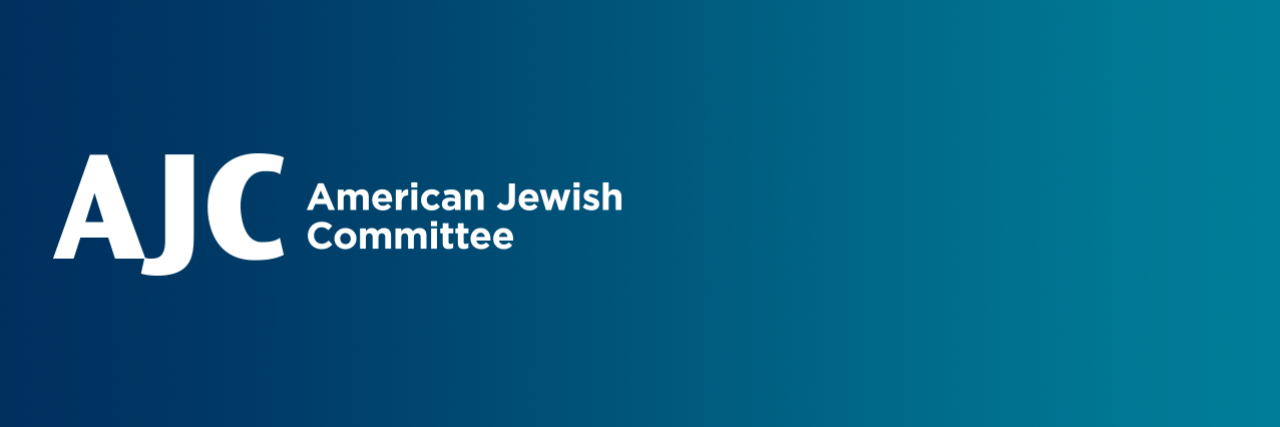June 8, 2015 — Washington, D.C.
U.S. Deputy Secretary of State Antony Blinken, addressing the AJC Global Forum, reaffirmed the strength of the U.S.-Israel relationship, the U.S. commitment to prevent Iran from acquiring a nuclear weapon, and a determination to fight against global antisemitism.
Warmly received by an audience of more than 2,000 representing Jewish communities across the United States and more than 70 other countries, he praised AJC, noting the global advocacy organization has “been called the State Department of the Jewish people.”
“You have been an indispensable partner to President Obama and to his predecessors in America’s ironclad commitment to Israel’s future as a secure, democratic, prosperous, Jewish state,” Blinken said. “For over a century, AJC has raised its voice in defense of those who cannot, fighting oppression with unflinching advocacy and intolerance with unwavering commitment.”
Standing in for Secretary of State John Kerry, who had been scheduled to appear at the AJC Global Forum for the second time in three years, but suffered a broken leg a week ago, Blinken spoke of the administration’s solidarity with Israel.
“No administration and no president has done as much for Israel’s security as President Obama,” said Blinken. He cited the rise in the number of joint military exercises, American financial support for Israeli weapons systems, and its backing for Israel in the UN, promising: “We will continue to stand with Israel and against one-sided, biased resolutions – even if we are the only country on earth to do so.”
Observing that even if “the United States and Israel may not always see eye to eye,” Blinken received loud applause when he said, “our bedrock security relationship is sacrosanct, and I’m here to tell you it is stronger than ever.”
Focusing on the peace process, he reiterated the administration commitment “to realize the goal of two states living side-by-side in peace and security, because this is the best way to guarantee Israel’s future as a democratic, Jewish state.”
Turning to Iran, a main thrust of his remarks, Blinken assured the audience that Israeli security was “at the very top of our minds” when negotiating with the Iranians, and that when it came to the goal of preventing Tehran from developing a nuclear weapon, “there is not one inch of daylight between the United States and Israel.”
With the June 30th negotiating deadline looming, he also stressed that there still is much work to be done to achieve a deal with Iran. “We do not yet have a comprehensive agreement, and there remains a chance that we won’t get one.” Regarding one of the open issues, the role of the International Atomic Energy Agency (IAEA) in monitoring implementation of any agreement, Blinken was clear about U.S. support for the IAEA role. “We would not agree to a deal unless the IAEA is granted access to whatever Iranian sites are required to verify that Iran’s program is exclusively peaceful,” he said, in apparent reference to concerns that suspect military sites would be off-limits.
“No deal is better than a bad deal,” said Blinken. “We’ve had plenty of opportunities throughout this negotiating process to take a bad deal; we did not, and we will not.”
He also spoke passionately of the administration’s concerns about “the deeply disturbing rise of antisemitism,” especially in Europe. “This is happening today, just 70 years after the Holocaust – just 70 years after we pledged ‘Never Again’ – while survivors of the Shoah are still with us to bear witness.”
Noting AJC’s key role in fighting this scourge, Blinken explicitly cited the organization’s eight-point package of recommendations to protect the Jews of Europe, presented to European leaders at the “Defining Moment for Europe: AJC Strategy Conference on Combating Antisemitism,” conducted May 4-5 in Brussels.
“Last month, AJC released a very thought-provoking ‘Call to Action’ on antisemitism that raises important recommendations that all of us can benefit from,” the Deputy Secretary said. “These include developing new curricula for civic education, undertaking thorough studies of the security of Jewish communities, and blocking social media sites that incite hatred and violence.
“But all of you know so very well that antisemitism is not just a Jewish issue. It’s not a Jewish issue, period. It cannot be addressed by Jewish organizations alone. Antisemitism – like all forms of prejudice – is a fundamental threat to democracies and open societies in every corner of the globe.”
Blinken said that U.S. embassies and consulates around the world were helping Jewish communities cope with antisemitism, and U.S. diplomats at the UN “are undertaking efforts to push back against antisemitism – unfortunately, almost on a daily basis.”
And, praising AJC, Blinken said, it “has led the campaign against intolerance, against injustice, against a false choice between security and peace for the State of Israel.”


